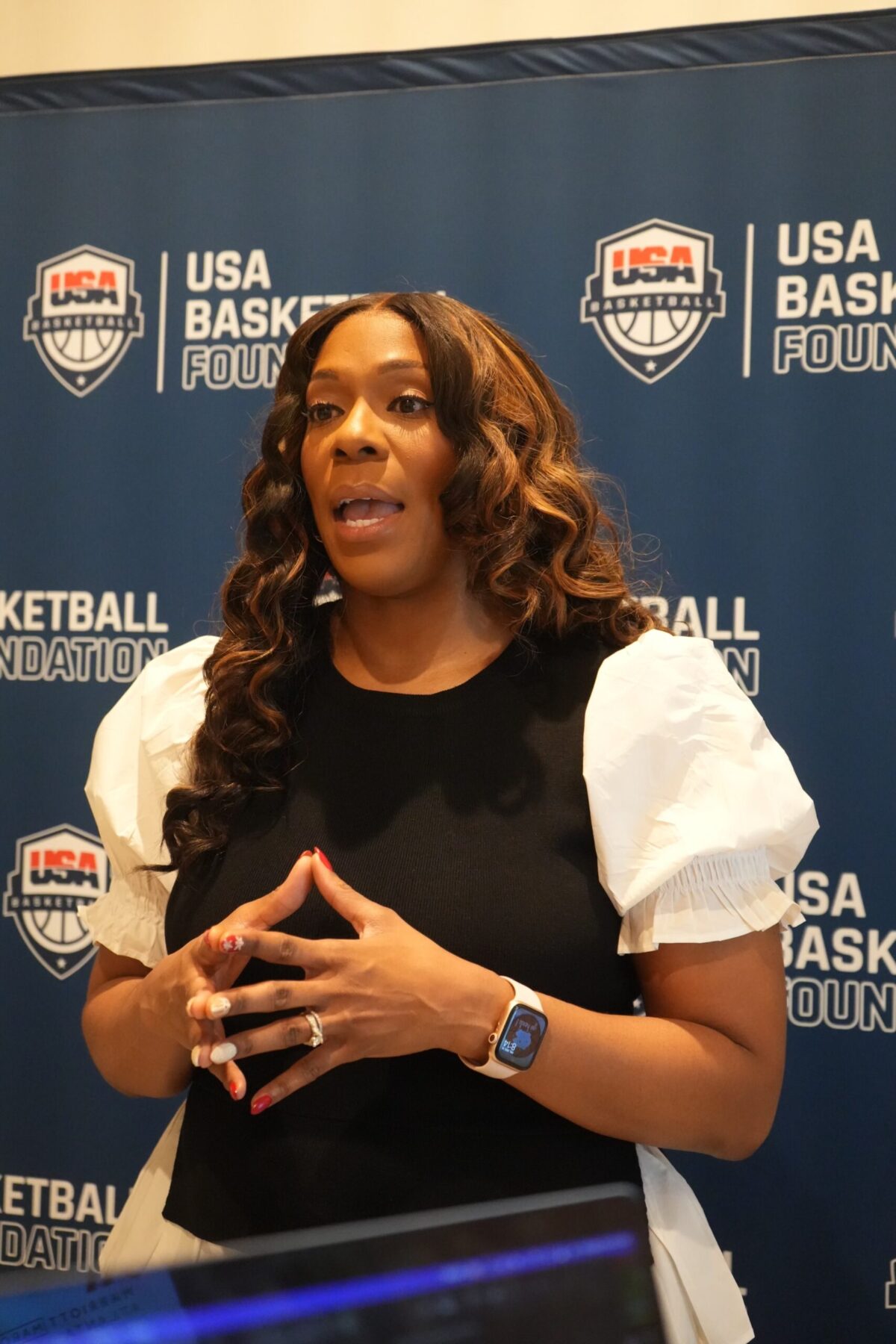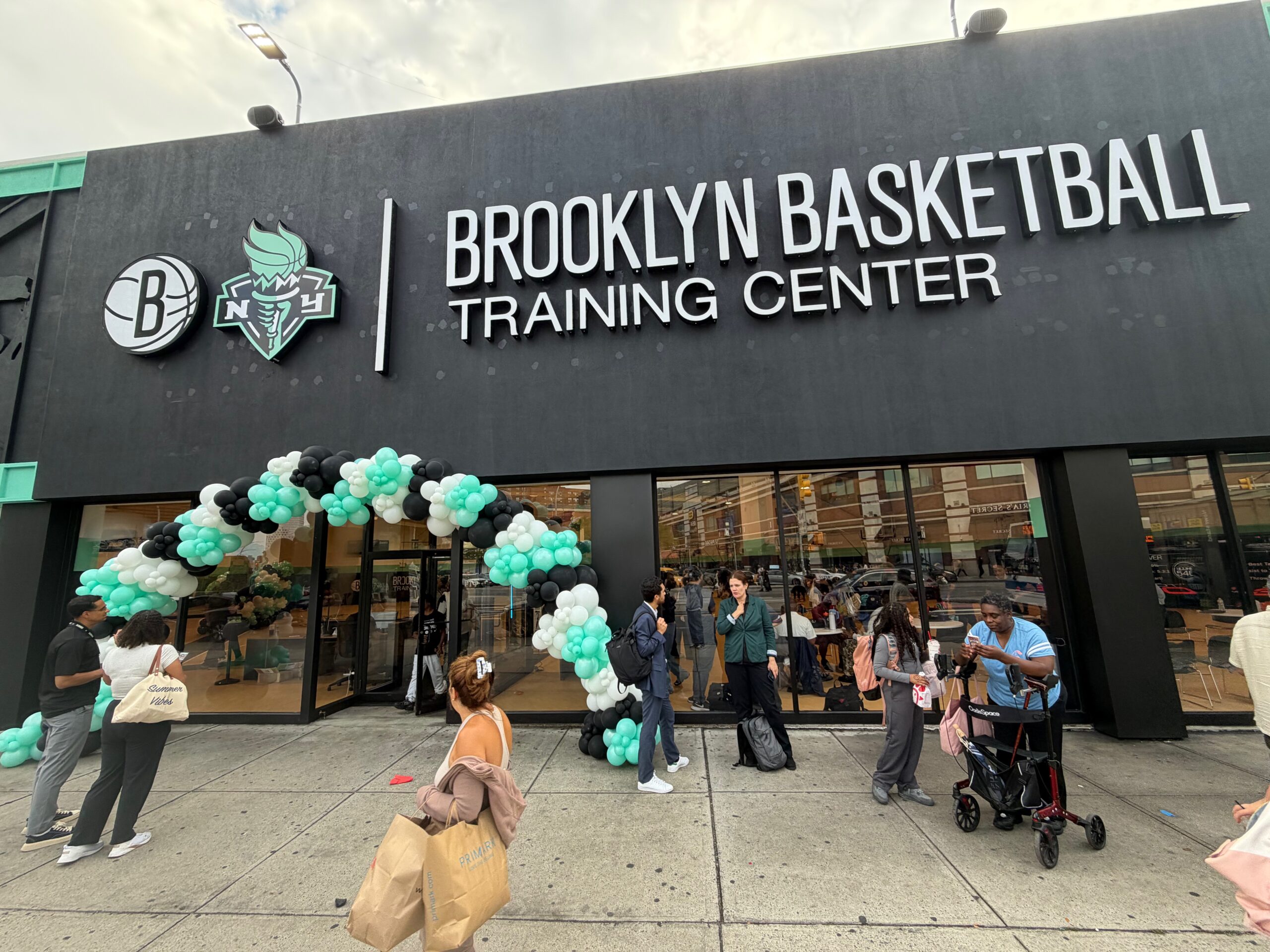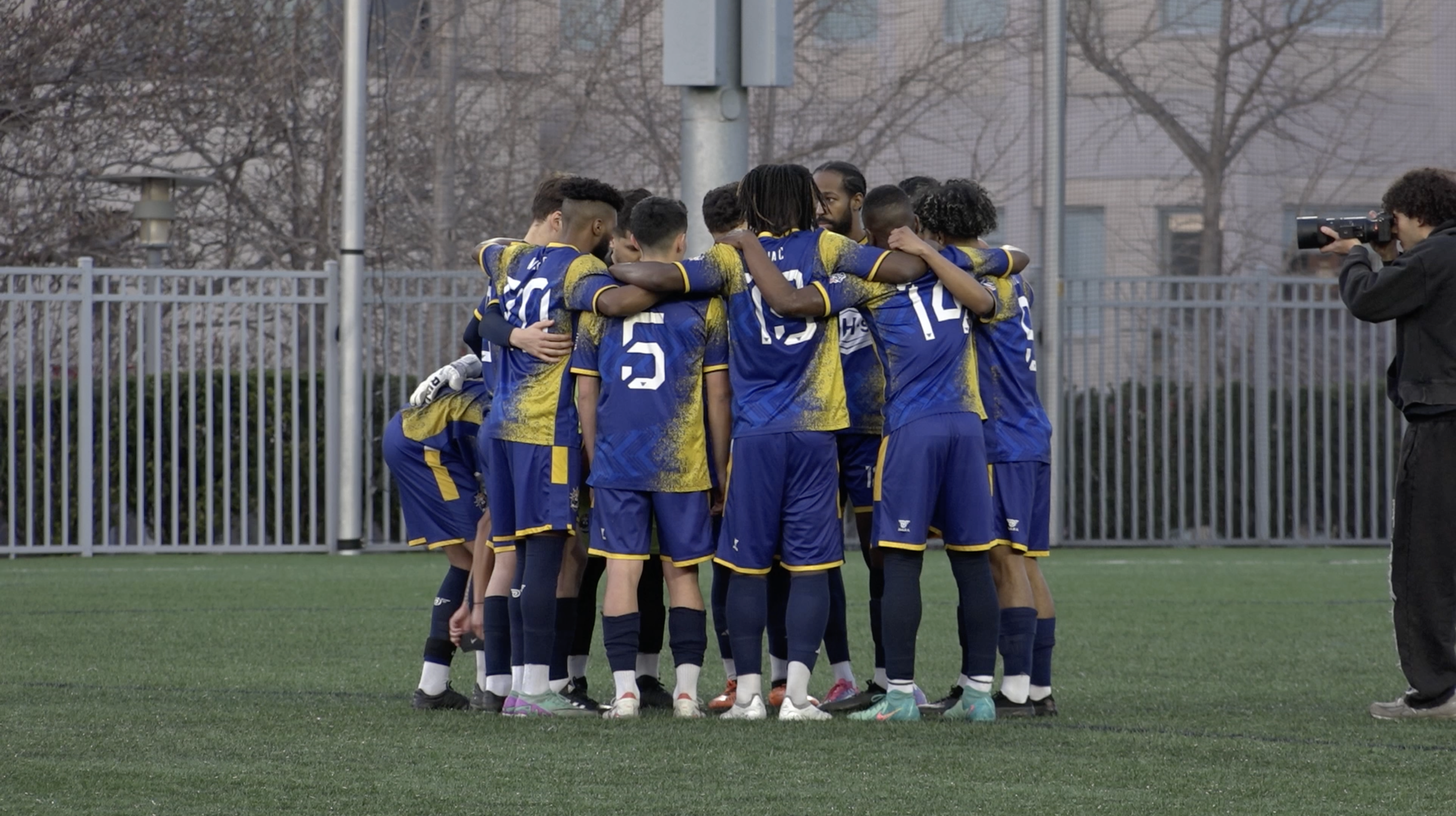Having a mentor in sports, one of the most competitive industries to break into, is invaluable. Whether you want to be an on-air talent, work in production, or handle business affairs, leaning on mentors who will vouch for you in rooms you’re not in is paramount.
Not only is it hard to get a job in sports, but there are more hurdles to overcome as a person of color. That’s why it’s so special to find a mentor to push you to network across and up. Relationships are everything.
Jennifer Lynne Williams, the USA Basketball Foundation’s chief development officer, has used her platform to help bridge the gap. And she’s only getting started.
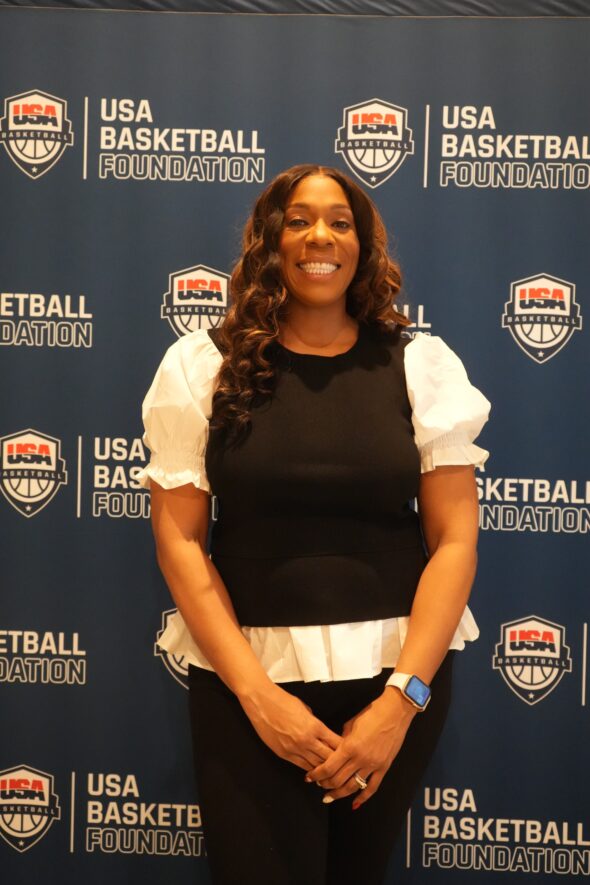
(Photography by Kollin Washington.)
Williams attended the University of North Carolina Chapel Hill, playing basketball as a four-year letterman while majoring in journalism. After Williams graduated in 2004, she realized her true passion in sports was in athletic administration. In 2008, she received a master of science degree at North Carolina Central University.
Before the USA Basketball Foundation, Williams had a goal of becoming an athletic director before turning 40 years old. Through hard work and dedication, her experiences as the assistant director of athletic development at DePaul University and the associate athletic director for North Carolina Agricultural and Technical State University paved the way for her promotion to the role of athletic director of Alabama State in 2018. This promotion followed her stints as the deputy athletic director and interim athletic director at the same institution.
She was 37.
Williams’ resume speaks for itself, but her impact on young black sports professionals exceeds her.
When Williams joined the USA Basketball Foundation in May 2021, she remained mindful of the profound impact North Carolina Central had on her career.
This prompted the Detroit native to launch the Torch Leadership in Sport Mentoring program in the Spring of 2022.
“The goal was really about connecting students with people in the industry who could help them who can mentor them,” Williams said. “We don’t promise jobs coming out of Torch, but what we do promise is our connections and lifelong connections are what we’re hoping that these students will be able to have as they embark on a career in sports.”
The program is tailor-made to provide students attending Historically Black Colleges and Universities (HBCUs), Hispanic serving institutions and Asian American, Native American Pacific Islander-serving institutions with career readiness for the sports world. The opportunity introduces the cohort to executive leaders at USA Basketball, while offering one-on-one mentoring from senior staff. Each fellow is required to meet with their mentor once a month and attend one in-person meeting according to the USA Basketball Foundation.
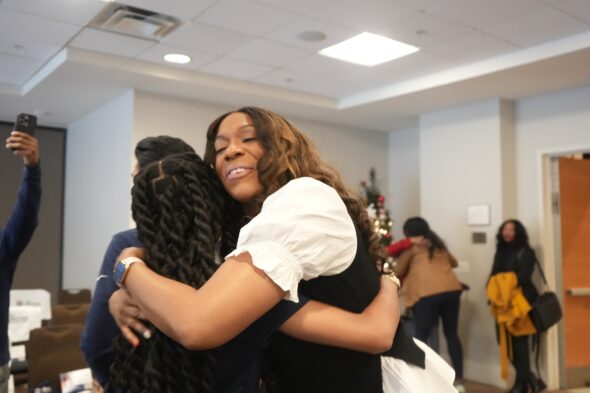
(Photography by Miles Johnson.)
Sydney Bellamy, a junior broadcast journalism major at Florida Agricultural & Mechanical University and 2023 Torch cohort member, spoke about how much she values her relationship with Williams.
“Her being my mentor is a great thing because she’s teaching me a lot of key lessons,” Bellamy said. “Being a part of the Torch program was something I wanted to do since I was introduced to Mrs. Jennifer last year at the HBCU All-Star game. She’s really plugging us into so many opportunities.”
Allen Donegan, a senior finance major on the pre-law track at Morehouse College, was also one of nine students named to the second Torch Mentorship cohort.
“It’s a big cycle that starts with Ms. Jennifer,” Donegan said. “Wherever I end up in my career, a large chunk of that will be due to her.”
Williams is a big advocate of networking up, but also networking across. Networking across is making lasting connections with your classmates, colleagues, or perhaps a friend you made at a conference.
Williams has cultivated enduring relationships with professionals in sports, which have transformed into lifelong friendships. One notable friend is April Taylor, the founder and CEO of the SVE (Strategy, Vision and Execution) firm, which serves as a full-service consulting firm based on strategic planning, event management, sponsorship activation, and nonprofit management.
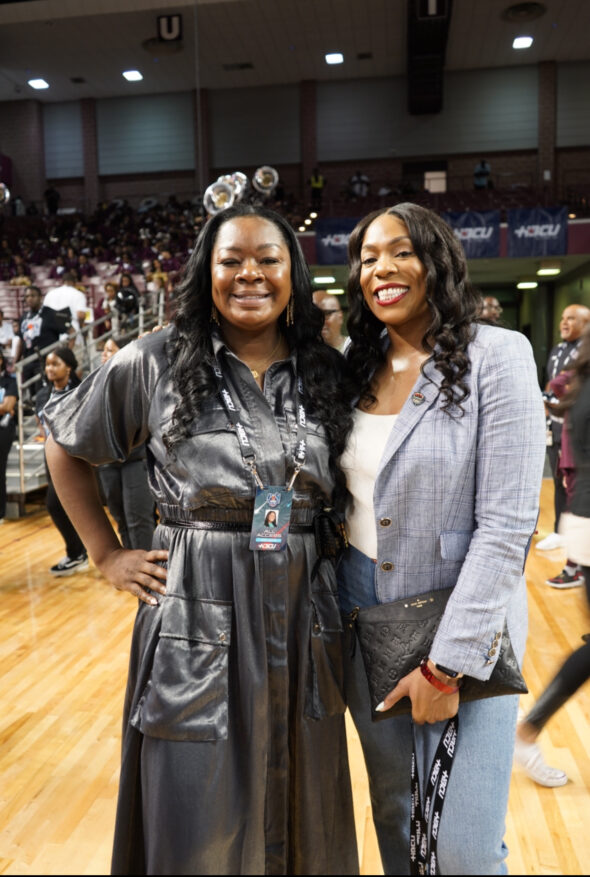
(Photography by Miles Johnson.)
Williams and Taylor first met at the NCAA Leadership Institute for Ethnic Minority Males and Females on June 15, 2011 in Boston, Ma. The duo quickly turned from like-minded women in sports pursuing a job in athletic administration, to becoming inseparable friends. More than 10 years later, when Williams started the Torch Mentorship in Sport, she identified Taylor as the most fitting person to lead the event planning and content creation of the student’s Cricket Celebration Bowl experience.
“Under her leadership, she’s allowed the SVE firm to be able to really curate her vision in a way that is impactful and intentional,” Taylor said. “I think the students who went through the Torch program this year, will be saying it themselves like, ‘Oh my gosh, I love what I saw. It impacted me.’ And now I’m able to move forward with a deeper understanding of why it’s important that we give back.”
Williams is a connector, strategist and master fundraiser. Her reputation for talking highly of her mentees is noteworthy. Whenever she has the chance to uplift black people in sports, she doesn’t take it for granted.
“If it wasn’t for mentors and champion supporters in my life, I wouldn’t be in the role that I am. And I’ve had them from various backgrounds. Not just people who look like me, but people who saw something in me, and wanted to pour into me,” Williams said during the December 2023 Torch conference. “That’s something I’ve always said that when I got to a certain level, I was going to pay it forward.”
The sports industry is already extremely difficult to break into, but people like Williams are helping bridge the gap, day by day. The key for her is to never forget her roots as she continues to ascend in sport.
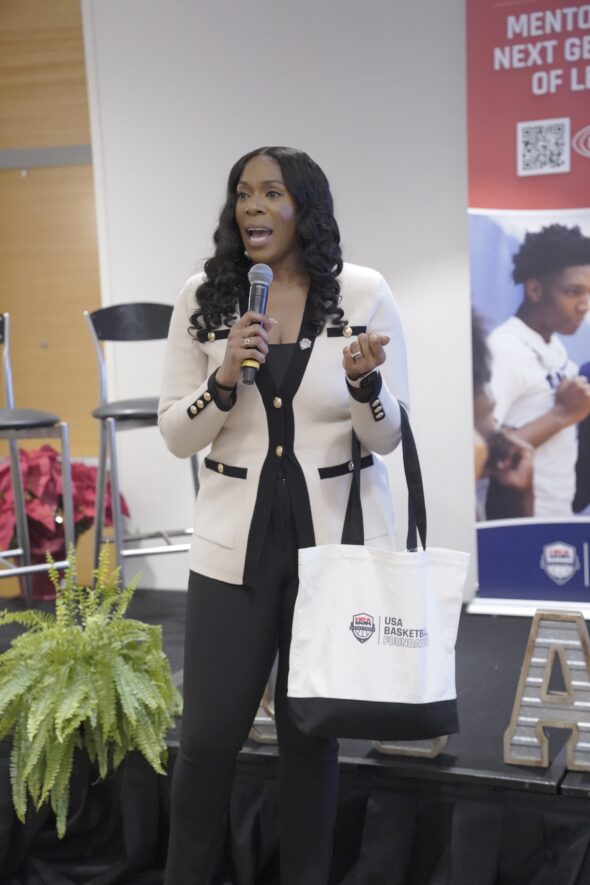
(Photography by Kollin Washington.)
